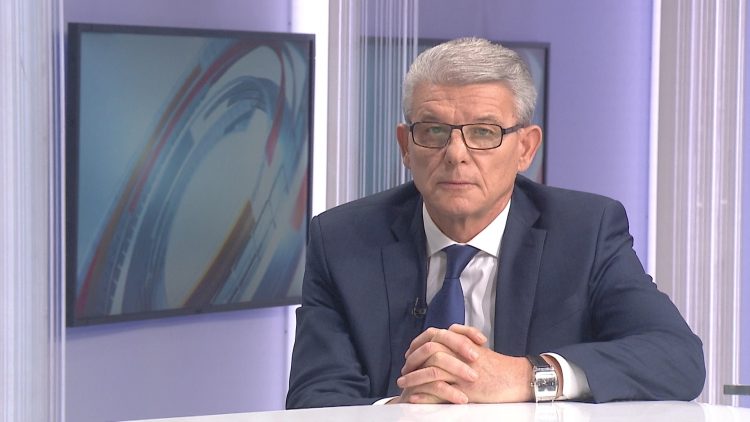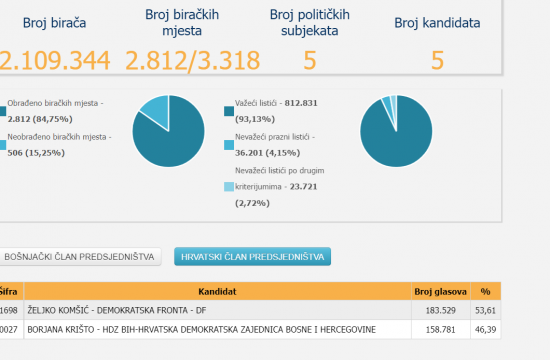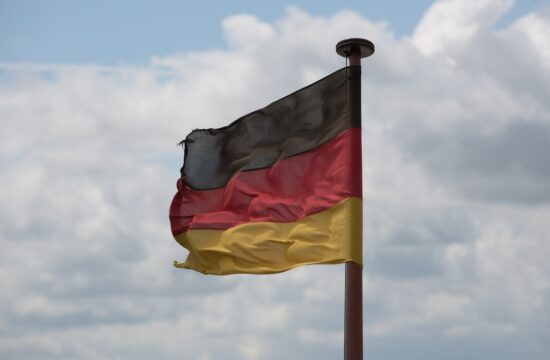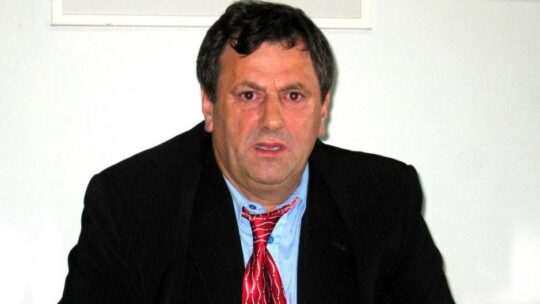
By celebrating the creation of the unrecognized Croat para-state established during the 1992-1995 war in Bosnia, Bosnian Croat leader Dragan Covic and his party are morally and politically damaging all of Bosnia’s citizens, Vice Chairman of Bosnia’s House of Representatives, Sefik Dzaferovic, said.
Herzeg-Bosnia was a self-declared Bosnian Croat political structure established by Croat nationalists led by Covic’s party, the Croat Democratic Union (HDZ BiH), in the south of Bosnia and Herzegovina in 1991.
Its armed forces, the Croatian Defence Council (HVO), were first allied with Bosniak armed forces. But HVO and Bosnia's Army turned against each other after the parastate declared itself a republic on August 28, 1993, and changed its name into the Croatian Republic of Herzeg-Bosna, with Mostar being its capital.
The parastate had the ambition to become one of three ethnic republics in Bosnia or preferably part of neighboring Croatia.
The Croat-Bosniak conflict ended in 1994 with an agreement brokered in Washington, D.C. which prescribed the creation of a Bosniak-Croat Federation entity (FBiH) out of territories controlled by Bosniaks and Bosnian Croats. Herzeg-Bosna was abolished two years later.
The International Criminal Tribunal for the Former Yugoslavia (ICTY) has, in its rulings against six HVO war criminals, determined that “Herzeg-Bosnia is the result of the establishment of a joint criminal enterprise, which had the goal of creating a Croatian entity in Bosnia and Herzegovina, and uniting it with neighbouring Croatia,” Dzaferovic said, adding that Herzeg-Bosnia has never been a separate state.
“It was pure kidnapping of institutions of the Republic of Bosnia and Herzegovina on part of its territory, which was done with criminal intent. These are legal facts which are accepted by the entire international public and institutions in the civilised world,” said Dzaferovic, who is also a candidate for Bosniak member of the country’s tripartite Presidency.
“This can cause Mr. Covic to become emotional, but emotions are one thing and legal facts are another,” he said.
According to Dzaferovic, by showing “loyalty” to the convicted idea of Herzeg-Bosna, the HDZ is “pushing the Croat people in Bosnia out of the moral and legal framework of the civilised world.”
“Instead of celebrating the anniversary of the establishment of this creation, it would be much more appropriate to celebrate the abolishment as a civilised step in the battle against ethnocentrism and systemic violence, which included mass killings, concentration camps and deportation as a method of achieving this political goal,” Dzaferovic said.
He added that the time will come when Bosnia too will be celebrating victory against a policy represented by Herzeg-Bosna although aspirations to revive it still exist.
“We will not let them take Bosnia backward. Bosnia and Herzegovina will go forward, as close as possible toward the standards of modern countries, where decisions of international legal institutions are respected,” he said, referring to decisions made by the International Court of Justice and the European Court of Human Rights.




